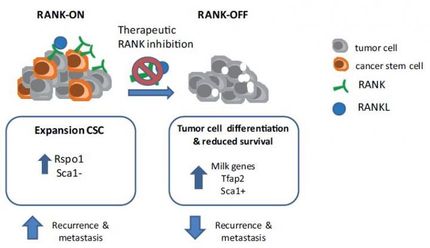Biomira files investigational new drug application for PX-478, a novel inhibitor of hypoxia-inducible factor-1 alpha
Advertisement
Biomira Inc. announced that it has submitted an investigational new drug (IND) application to the U.S. food and Drug Administration for PX-478. PX-478 has been shown in preclinical studies to inhibit hypoxia-inducible factor (HIF)-1 alpha, a protein that controls the transcription of a number of genes whose products are important for tumor growth and survival. In these preclinical studies, PX-478 has produced significant tumor regression and growth delay in multiple models of human cancers, including cancers of the lung, breast, prostate, colon, kidney, pancreas and ovary.
"HIF-1 alpha plays a critical role in the response of tumor cells to low oxygen, a situation seen in tumors where existing blood vessels are insufficient to supply needed oxygen," said Dr. Lynn Kirkpatrick, Chief Scientific Officer of Biomira. "In areas of low oxygen and as tumors grow, they adapt their metabolism due to decreased oxygen and nutrients and attract new blood vessels to bring in more oxygen, a process known as angiogenesis. Both the altered metabolism and angiogenesis are under the control of HIF-1 alpha. Consequently, HIF-1 alpha is a drug target that provides a multi-pronged approach for cancer therapy. We believe that PX-478 will be the first small molecule to enter clinical development that acts directly to lower HIF-1 alpha protein levels."
PX-478 is a potent inhibitor of HIF-1 alpha, a protein target whose levels are elevated in a wide range of tumors. The protein is a key factor in the response of a cancer cell to hypoxia (lack of oxygen), including the angiogenic cascade that allows tumors to establish new blood vessels essential to their survival and growth. Inhibition of angiogenesis is a validated approach to treating cancer.
In preclinical studies, PX-478 demonstrated antitumor activity when delivered orally and has shown marked tumor regression and growth inhibition, both of which correlated to the HIF-1 alpha levels of the tumor models. These models included ovarian, renal, prostate, colon, pancreatic, lung and breast cancer, representing a large potential market for this product candidate. The ability to combine PX-478 with radiation therapy may further expand the opportunities for this novel compound.






















































